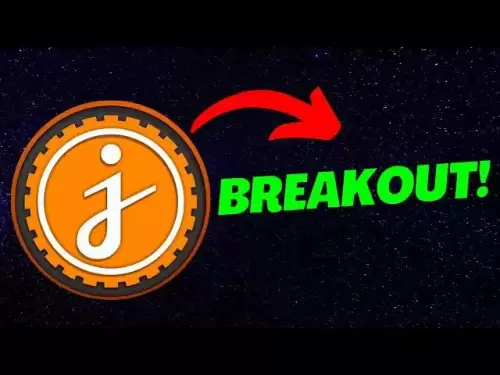-
 Bitcoin
Bitcoin $118,164.3721
-0.58% -
 Ethereum
Ethereum $3,439.2144
9.04% -
 XRP
XRP $3.2533
10.40% -
 Tether USDt
Tether USDt $1.0003
0.01% -
 BNB
BNB $719.2057
3.65% -
 Solana
Solana $176.1008
5.82% -
 USDC
USDC $0.9998
-0.01% -
 Dogecoin
Dogecoin $0.2141
6.52% -
 TRON
TRON $0.3122
3.73% -
 Cardano
Cardano $0.8144
9.21% -
 Hyperliquid
Hyperliquid $46.3175
-3.33% -
 Stellar
Stellar $0.4692
1.81% -
 Sui
Sui $4.0252
0.40% -
 Chainlink
Chainlink $17.0647
3.84% -
 Hedera
Hedera $0.2493
4.67% -
 Bitcoin Cash
Bitcoin Cash $495.9806
-0.87% -
 Avalanche
Avalanche $22.8661
3.91% -
 Shiba Inu
Shiba Inu $0.0...01442
4.59% -
 UNUS SED LEO
UNUS SED LEO $8.8195
0.03% -
 Toncoin
Toncoin $3.2344
4.19% -
 Litecoin
Litecoin $99.5361
2.51% -
 Polkadot
Polkadot $4.2226
2.56% -
 Monero
Monero $337.5953
1.12% -
 Pepe
Pepe $0.0...01358
4.99% -
 Uniswap
Uniswap $8.9955
-1.05% -
 Bitget Token
Bitget Token $4.7519
1.38% -
 Dai
Dai $0.9998
-0.03% -
 Ethena USDe
Ethena USDe $1.0002
-0.05% -
 Aave
Aave $322.0449
-2.20% -
 Bittensor
Bittensor $427.6037
-2.47%
Is it safe to keep my crypto on Kraken?
Kraken, a secure U.S.-based crypto exchange founded in 2011, uses cold storage and insurance to protect assets but users should remain cautious of regulatory and operational risks.
Jul 09, 2025 at 11:21 pm
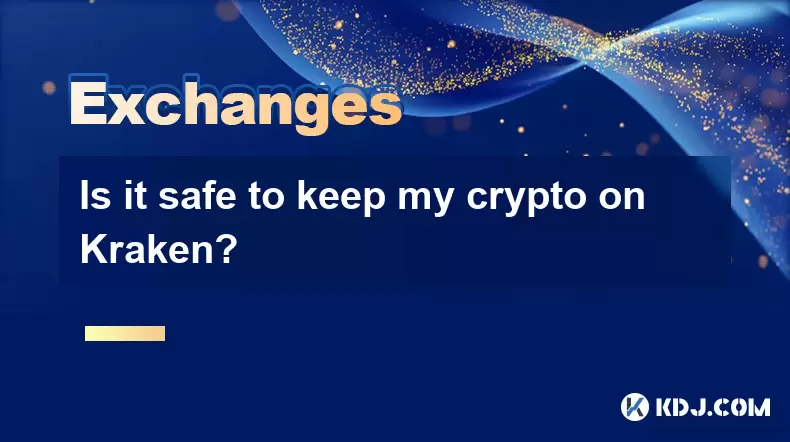
Understanding Kraken as a Cryptocurrency Exchange
Kraken is one of the oldest and most established cryptocurrency exchanges in the United States. Founded in 2011, it has built a reputation for compliance with regulatory standards and robust security practices. Its headquarters are based in San Francisco, and it serves millions of users globally. Unlike many other platforms, Kraken has not suffered any major breaches or hacks since its inception.
One of the key reasons for this strong track record is its commitment to cold storage solutions for the majority of user funds. Cold storage refers to keeping cryptocurrencies offline, away from potential cyber threats. Additionally, Kraken maintains insurance policies that cover digital assets held on the platform, offering an extra layer of protection in case of unforeseen events.
However, while Kraken's infrastructure appears secure, users should still be aware of general risks associated with centralized exchanges. These include potential government actions, internal mismanagement, or third-party vulnerabilities that could indirectly impact account holders.
Security Features Offered by Kraken
Kraken employs multiple layers of security to protect user accounts and stored assets. One of the most notable features is two-factor authentication (2FA), which adds an additional verification step during login and certain transaction types. Users can set up 2FA using mobile apps like Google Authenticator or hardware-based keys such as YubiKey for even stronger protection.
Another critical security measure implemented by Kraken is account tier verification. Users must go through Know Your Customer (KYC) procedures, which help prevent identity theft and fraudulent activity. Higher verification tiers unlock increased trading limits and enhanced withdrawal capabilities, but they also require more personal documentation.
IP whitelisting is another feature available to advanced users, allowing them to restrict access to their accounts only from specific devices or locations. This significantly reduces the risk of unauthorized logins, especially for those holding large amounts of crypto on the platform.
Risks Associated with Holding Crypto on Any Exchange
Even though Kraken has a solid security framework, it's important to understand the inherent risks of storing digital assets on any centralized exchange. Exchanges are prime targets for hackers, and while Kraken has never been successfully breached, no system is entirely immune to attack.
One major concern is regulatory uncertainty. Governments around the world are still figuring out how to regulate cryptocurrency, and changes in laws or enforcement could lead to sudden freezes or seizures of assets. In some jurisdictions, authorities have taken control of exchange-held funds without prior notice, leaving users unable to access their holdings temporarily or permanently.
Additionally, technical failures or service disruptions can pose risks. While rare on Kraken, issues like server outages or wallet maintenance could temporarily lock users out of their funds. If you're holding large sums of crypto, relying solely on an exchange for storage might not be the best strategy.
Differences Between Hot Wallets and Cold Storage
When you store your cryptocurrency on Kraken, your funds are typically kept in hot wallets, which are connected to the internet and used for quick transactions. While convenient, hot wallets are more vulnerable to attacks compared to cold storage options.
Kraken mitigates this risk by storing the vast majority of user funds in offline cold storage systems. Cold storage involves keeping private keys disconnected from the internet, often in physical vaults or isolated servers. This method dramatically reduces the chances of theft via online hacking attempts.
Despite these precautions, users should consider diversifying storage methods if they hold significant amounts of crypto. Moving funds to a personal hardware wallet, such as Ledger or Trezor, gives individuals full control over their private keys and removes dependency on third-party platforms.
Best Practices for Securing Your Kraken Account
To maximize the safety of your assets on Kraken, follow several recommended best practices. First, always enable two-factor authentication (2FA) and use a trusted authenticator app rather than SMS-based 2FA, which can be compromised through SIM swapping.
Next, regularly review your account activity and login history. Kraken provides tools that allow users to monitor recent sessions and detect any suspicious behavior. If anything seems unusual, take immediate action by logging out all sessions and changing your password.
You should also keep your recovery phrases and backup codes secure. These are essential for regaining access to your account if you lose your device or authentication method. Storing them in a safe, offline location ensures you retain control over your account even in emergency situations.
Finally, avoid sharing personal information or account details with anyone claiming to represent Kraken support. The platform will never ask for sensitive data via email or chat, and doing so could expose you to phishing scams.
Frequently Asked Questions (FAQs)
Q: Does Kraken offer insurance coverage for stolen crypto?
A: Yes, Kraken has insurance policies in place that cover digital assets held in cold storage. However, this insurance does not extend to individual user accounts in cases where loss occurs due to compromised credentials or phishing attacks.
Q: Can I transfer my crypto from Kraken to a personal wallet?
A: Absolutely. Kraken allows users to withdraw their cryptocurrencies to external wallets at any time. This is considered a safer practice for long-term storage, especially when using reputable hardware wallets.
Q: What happens to my crypto if Kraken shuts down?
A: If Kraken were to shut down, it would likely follow legal procedures to return user funds. However, there is always a risk that insolvency or regulatory actions could delay or complicate the retrieval process.
Q: How do I know if my account has been compromised?
A: Check your login history and recent transaction logs within your Kraken account. Unfamiliar IP addresses or unexpected trades are red flags. Immediately revoke session access and change your password if you suspect unauthorized activity.
Disclaimer:info@kdj.com
The information provided is not trading advice. kdj.com does not assume any responsibility for any investments made based on the information provided in this article. Cryptocurrencies are highly volatile and it is highly recommended that you invest with caution after thorough research!
If you believe that the content used on this website infringes your copyright, please contact us immediately (info@kdj.com) and we will delete it promptly.
- Trump, Meme Coins, and Tokens: A Wild Ride in Crypto
- 2025-07-17 18:50:12
- Ripple's EU Expansion: RLUSD Takes Center Stage, XRP's Role Defined
- 2025-07-17 18:30:12
- XRP Whale Alert: $73M Moved to Coinbase – Correction Incoming?
- 2025-07-17 19:10:14
- Sui (SUI), Mutuum Finance (MUTM), and DeFi Adoption: A Tale of Two Trajectories
- 2025-07-17 19:10:14
- Crypto Bills, ETH Surge, and Buybacks: Decoding the Latest Moves
- 2025-07-17 19:50:11
- Shiba Inu's ATH Ambitions: Can It Outpace the Competitors?
- 2025-07-17 18:30:12
Related knowledge
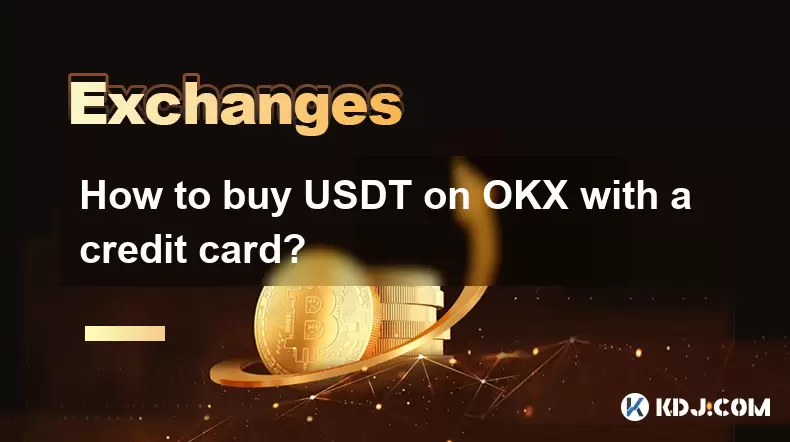
How to buy USDT on OKX with a credit card?
Jul 10,2025 at 01:14pm
What is USDT and why buy it on OKX?USDT (Tether) is one of the most widely used stablecoins in the cryptocurrency market. It is pegged to the value of...
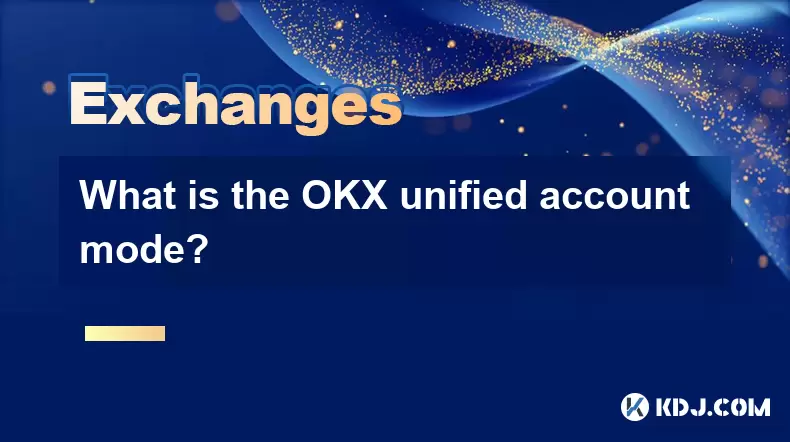
What is the OKX unified account mode?
Jul 09,2025 at 01:07pm
Understanding the OKX Unified Account ModeThe OKX unified account mode is a feature introduced by OKX, one of the leading cryptocurrency exchanges glo...
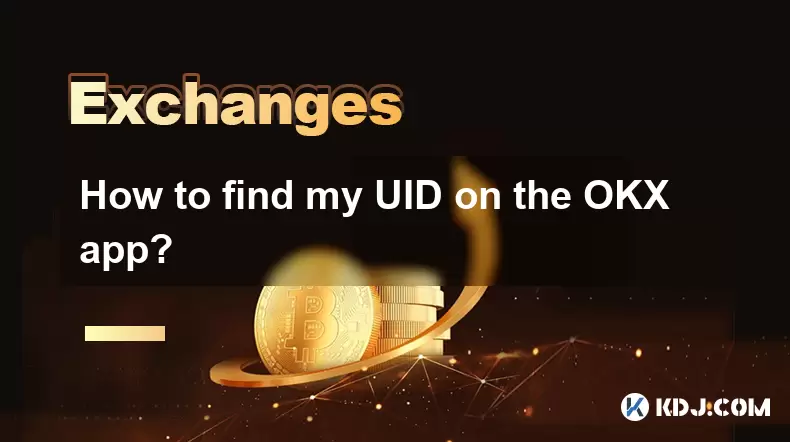
How to find my UID on the OKX app?
Jul 14,2025 at 08:56pm
Understanding What a UID Is on OKXIn the context of cryptocurrency platforms, a UID (User Identification Number) is a unique identifier assigned to ea...

OKX futures trading tutorial for advanced users
Jul 09,2025 at 07:29am
Understanding OKX Futures Trading InterfaceBefore diving into advanced strategies, it's crucial to have a deep understanding of the OKX futures tradin...
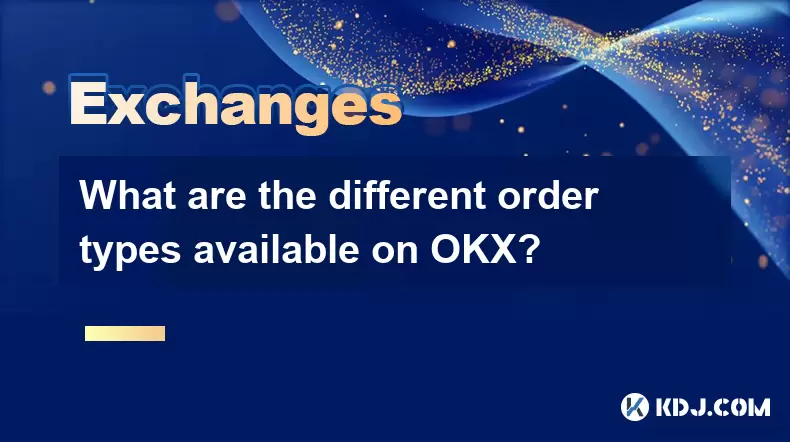
What are the different order types available on OKX?
Jul 08,2025 at 10:15pm
Understanding Order Types on OKXOKX is one of the leading cryptocurrency exchanges globally, offering a wide array of trading tools and order types to...
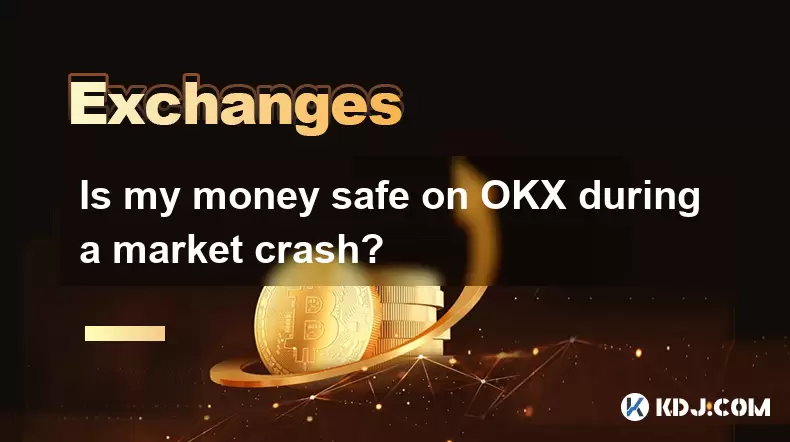
Is my money safe on OKX during a market crash?
Jul 09,2025 at 01:43pm
Understanding Market Crashes and Cryptocurrency ExchangesDuring a market crash, cryptocurrency prices plummet rapidly, often causing panic among trade...

How to buy USDT on OKX with a credit card?
Jul 10,2025 at 01:14pm
What is USDT and why buy it on OKX?USDT (Tether) is one of the most widely used stablecoins in the cryptocurrency market. It is pegged to the value of...

What is the OKX unified account mode?
Jul 09,2025 at 01:07pm
Understanding the OKX Unified Account ModeThe OKX unified account mode is a feature introduced by OKX, one of the leading cryptocurrency exchanges glo...

How to find my UID on the OKX app?
Jul 14,2025 at 08:56pm
Understanding What a UID Is on OKXIn the context of cryptocurrency platforms, a UID (User Identification Number) is a unique identifier assigned to ea...

OKX futures trading tutorial for advanced users
Jul 09,2025 at 07:29am
Understanding OKX Futures Trading InterfaceBefore diving into advanced strategies, it's crucial to have a deep understanding of the OKX futures tradin...

What are the different order types available on OKX?
Jul 08,2025 at 10:15pm
Understanding Order Types on OKXOKX is one of the leading cryptocurrency exchanges globally, offering a wide array of trading tools and order types to...

Is my money safe on OKX during a market crash?
Jul 09,2025 at 01:43pm
Understanding Market Crashes and Cryptocurrency ExchangesDuring a market crash, cryptocurrency prices plummet rapidly, often causing panic among trade...
See all articles
























